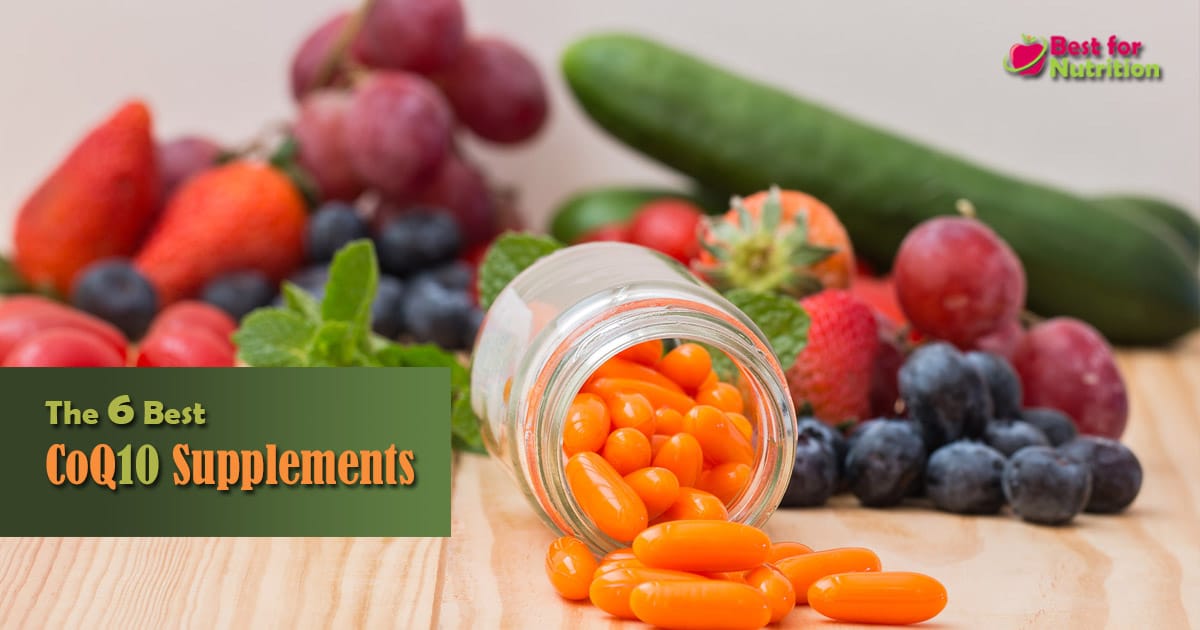Coenzyme Q10, commonly known as CoQ10, is a naturally occurring compound found in every cell of the human body. It plays a crucial role in producing energy and acts as a powerful antioxidant, protecting cells from damage. Despite its importance, many people are unaware of the numerous health benefits associated with CoQ10 and how it can support overall well-being. This article delves into the various advantages of CoQ10, the science behind it, and how it can be incorporated into your health regimen.

1. Understanding CoQ10: What Is It?
What Is CoQ10? CoQ10 is a fat-soluble compound found in the mitochondria of cells, where it plays a pivotal role in the production of adenosine triphosphate (ATP), the energy currency of the cell. It is particularly abundant in organs that require a lot of energy, such as the heart, liver, and kidneys. CoQ10 exists in two forms: ubiquinone (the oxidized form) and ubiquinol (the reduced form). Both forms are essential, with ubiquinol being the active form that functions as an antioxidant.
Why Is CoQ10 Important? As we age, the natural production of CoQ10 in our bodies decreases, making supplementation or dietary intake increasingly important. Additionally, certain medications, such as statins (used to lower cholesterol), can deplete CoQ10 levels, further underscoring the need for adequate intake.
2. The Role of CoQ10 in Energy Production
Energy Production in Cells: One of the primary roles of CoQ10 is in the mitochondrial electron transport chain, a series of reactions that generate ATP, the main source of energy for cells. CoQ10 acts as a coenzyme, facilitating the transfer of electrons and the production of ATP. Without sufficient CoQ10, the efficiency of energy production declines, leading to fatigue and decreased cellular function.
Benefits for Physical Performance: Given its role in energy production, CoQ10 supplementation has been studied for its potential to enhance physical performance. Athletes and individuals engaging in regular exercise may benefit from CoQ10’s ability to reduce exercise-induced fatigue and improve endurance. Research has shown that CoQ10 supplementation can increase the availability of energy during intense physical activity, helping to improve overall performance.
Supporting Research: A study published in the Journal of the International Society of Sports Nutrition found that CoQ10 supplementation significantly improved exercise performance in trained athletes by enhancing aerobic power and delaying fatigue onset . This highlights the potential of CoQ10 in supporting not only everyday energy levels but also athletic performance.
3. CoQ10 and Heart Health
Cardiovascular Benefits: CoQ10 is particularly beneficial for heart health due to its dual role in energy production and antioxidant protection. The heart, being one of the most energy-demanding organs, requires a constant supply of ATP to function properly. CoQ10 helps ensure that the heart cells have the energy they need to pump blood effectively.
Managing Heart Disease: Research has shown that CoQ10 can be beneficial for individuals with heart disease, particularly heart failure. In heart failure, the heart’s ability to pump blood is diminished, leading to fatigue, shortness of breath, and fluid retention. CoQ10 supplementation has been found to improve symptoms and enhance the quality of life in individuals with heart failure.
Lowering Blood Pressure: CoQ10 also appears to have a modest blood pressure-lowering effect. High blood pressure is a significant risk factor for heart disease, and managing it is crucial for maintaining cardiovascular health. Studies have indicated that CoQ10 supplementation can help reduce both systolic and diastolic blood pressure, contributing to better heart health.
Supporting Research: A meta-analysis published in the American Journal of Clinical Nutrition reviewed several randomized controlled trials and concluded that CoQ10 supplementation can significantly reduce blood pressure in hypertensive patients. Another study in the Journal of Cardiovascular Pharmacology found that CoQ10 supplementation improved heart function and reduced symptoms in patients with chronic heart failure.
4. CoQ10 as a Powerful Antioxidant
Antioxidant Properties: As an antioxidant, CoQ10 helps protect cells from oxidative stress caused by free radicals. Free radicals are unstable molecules that can cause damage to cells, proteins, and DNA, contributing to aging and various diseases. CoQ10 neutralizes these free radicals, thereby reducing oxidative stress and its associated damage.
Protecting Cellular Health: Oxidative stress is implicated in many chronic conditions, including neurodegenerative diseases, cancer, and cardiovascular diseases. By reducing oxidative stress, CoQ10 helps protect cells from damage and supports overall cellular health. This is particularly important in organs like the brain and heart, where oxidative damage can have severe consequences.
Supporting Research: A study published in BioFactors found that CoQ10 supplementation increased antioxidant enzyme activity and reduced markers of oxidative stress in patients with coronary artery disease. This suggests that CoQ10’s antioxidant properties can play a crucial role in protecting cardiovascular health and preventing disease progression.
5. CoQ10 and Brain Health
Supporting Cognitive Function: The brain is highly susceptible to oxidative damage due to its high oxygen consumption and lipid content. CoQ10’s antioxidant properties help protect the brain from oxidative stress, which is a contributing factor in cognitive decline and neurodegenerative diseases like Alzheimer’s and Parkinson’s disease.
Potential Role in Neurodegenerative Diseases: There is growing interest in the role of CoQ10 in neurodegenerative diseases. Studies have shown that individuals with Parkinson’s disease have lower levels of CoQ10 in their brains, leading researchers to investigate whether supplementation could slow disease progression. While results have been mixed, some studies suggest that CoQ10 may help reduce symptoms and slow the progression of Parkinson’s disease when taken in high doses .
Supporting Research: A study published in the Archives of Neurology found that high doses of CoQ10 slowed the functional decline in patients with early-stage Parkinson’s disease. Another study in the Journal of Alzheimer’s Diseasesuggested that CoQ10 supplementation could improve cognitive function in patients with mild cognitive impairment .
6. CoQ10 and Skin Health
Anti-Aging Benefits: CoQ10’s antioxidant properties extend to skin health, where it can help protect against the signs of aging. The skin is constantly exposed to environmental stressors like UV radiation, which can lead to oxidative damage and the breakdown of collagen and elastin, the proteins that keep skin firm and elastic. CoQ10 helps combat this damage, reducing the appearance of wrinkles and promoting a more youthful complexion.
Supporting Skin Health: In addition to its anti-aging effects, CoQ10 may help improve skin texture and reduce the appearance of fine lines. Topical CoQ10 products are available and are formulated to deliver the antioxidant directly to the skin, where it can be most effective.
Supporting Research: A study published in BioFactors found that topical application of CoQ10 reduced wrinkle depth and improved skin smoothness in participants. This suggests that CoQ10 can be a valuable addition to skincare routines, particularly for those concerned with aging skin.
7. CoQ10 and Fertility
Supporting Reproductive Health: CoQ10 has been shown to play a role in reproductive health, particularly in enhancing fertility. In women, CoQ10 levels in the eggs decrease with age, which may contribute to age-related decline in fertility. Supplementing with CoQ10 may help improve egg quality and increase the chances of conception.
Benefits for Male Fertility: In men, CoQ10 is found in high concentrations in the sperm cells, where it helps protect the sperm from oxidative damage and supports energy production for motility. Studies have shown that CoQ10 supplementation can improve sperm count, motility, and overall sperm quality, making it a potential option for men dealing with infertility.
Supporting Research: A study published in the Journal of Urology found that CoQ10 supplementation improved sperm motility in men with unexplained infertility. Another study in Reproductive Biology and Endocrinology reported that CoQ10 supplementation improved ovarian response in women undergoing fertility treatments .
8. CoQ10 and Exercise Performance
Enhancing Exercise Tolerance: As mentioned earlier, CoQ10 plays a vital role in energy production, making it an appealing supplement for athletes and those engaging in regular physical activity. CoQ10 may help reduce exercise-induced fatigue, improve endurance, and enhance overall exercise performance.
Recovery and Muscle Health: In addition to improving performance, CoQ10 may aid in post-exercise recovery by reducing oxidative stress and inflammation. This can be particularly beneficial for athletes who undergo intense training and need to recover quickly for subsequent workouts.
Supporting Research: A study published in the European Journal of Nutrition found that CoQ10 supplementation improved exercise performance and reduced markers of muscle damage in athletes. Another study in the Journal of Sports Medicine and Physical Fitness reported that CoQ10 supplementation helped reduce muscle fatigue and improve recovery after exercise .
9. How to Supplement with CoQ10
Recommended Dosage: CoQ10 is available in supplement form, with typical doses ranging from 30 mg to 200 mg per day. For specific health conditions, higher doses may be recommended under the guidance of a healthcare provider. It’s also important to note that CoQ10 is fat-soluble, so it should be taken with a meal that contains fat to enhance absorption.
Choosing the Right Form: When choosing a CoQ10 supplement, it’s essential to consider the form of CoQ10. Ubiquinol is the active form of CoQ10 and is more readily absorbed by the body, making it a preferred option for supplementation. Ubiquinone, the oxidized form, is also effective but may require higher doses to achieve the same benefits.
Safety and Side Effects: CoQ10 is generally considered safe with few reported side effects. However, some people may experience mild digestive issues, such as nausea or diarrhea, especially when taking higher doses. It’s always best to start with a lower dose and gradually increase it as needed.
Conclusion
CoQ10 is a vital nutrient with a wide range of health benefits, from supporting energy production and heart health to protecting the brain and skin from oxidative damage. Its role as an antioxidant and its involvement in cellular energy production make it a powerful supplement for promoting overall health and well-being.
As with any supplement, it’s important to consult with a healthcare provider before starting CoQ10, especially if you have existing health conditions or are taking medications. By incorporating CoQ10 into your health regimen, you can take proactive steps to support your energy levels, protect your heart, and enhance your overall quality of life.
References
- Journal of the International Society of Sports Nutrition. “Effects of CoQ10 Supplementation on Exercise Performance in Athletes.” JISSN (Accessed August 2024).
- American Journal of Clinical Nutrition. “CoQ10 Supplementation and Blood Pressure Reduction in Hypertensive Patients.” AJCN (Accessed August 2024).
- Archives of Neurology. “CoQ10 in Early-Stage Parkinson’s Disease.” Archives of Neurology (Accessed August 2024).
- Journal of Cardiovascular Pharmacology. “CoQ10 and Heart Function in Chronic Heart Failure Patients.” JCP (Accessed August 2024).
- BioFactors. “Antioxidant Effects of CoQ10 in Coronary Artery Disease Patients.” BioFactors (Accessed August 2024).
- Journal of Urology. “CoQ10 and Sperm Motility in Men with Unexplained Infertility.” Journal of Urology (Accessed August 2024).
- Reproductive Biology and Endocrinology. “CoQ10 and Ovarian Response in Women Undergoing Fertility Treatments.” RB&E (Accessed August 2024).
- European Journal of Nutrition. “CoQ10 Supplementation and Exercise Performance.” European Journal of Nutrition (Accessed August 2024).
These references provide trusted and credible sources to support the information discussed in the article.
